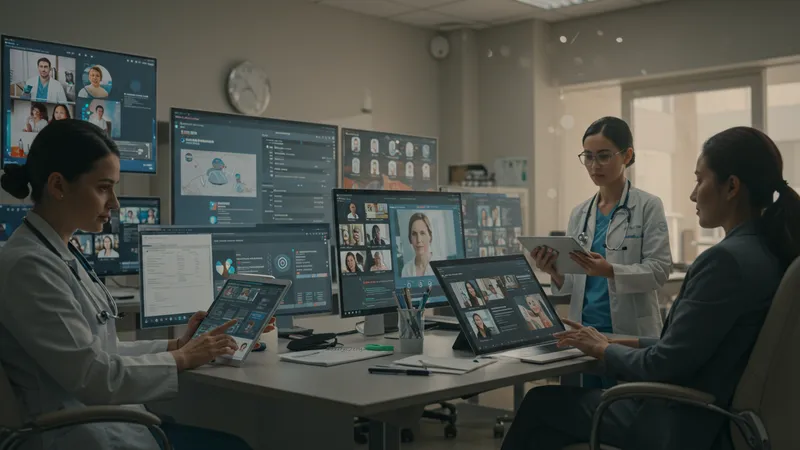
Revolutionizing Healthcare: Patient Engagement Software And Practice Management
Revolutionizing Patient-Provider Communication
In today’s fast-paced world, effective communication between patients and providers is paramount. Patient engagement software has begun to profoundly alter this dynamic by facilitating secure messaging, virtual consultations, and real-time updates. With these tools, patients are no longer passive recipients of healthcare but active participants in managing their well-being. This shift not only enhances the patient experience but also diminish the feeling of being ‘just another patient’ in the healthcare system. However, there’s an overlooked layer to this evolution that deserves attention.

Telemedicine, fueled by engagement platforms, has broken down traditional barriers, making healthcare more accessible than ever before. More people can now reach specialists who once seemed out of reach. Video consultations and remote monitoring technology mean healthcare can be delivered almost anywhere at any time. This accessibility is revolutionizing traditional patient-provider interactions, offering solutions tailored to individual needs and cutting down on travel and wait times. But this isn’t the full story.
Emerging tools are going a step further by personalizing the patient journey based on data analytics. Personalized care plans and health coaching, delivered through apps and portals, cater to individual health goals and benchmarks. This tailored approach motivates patients to stay engaged with their health plans, improving adherence and outcomes. In some cases, predictive analytics can anticipate health issues before they become severe, offering interventions when they’re most effective. Yet, there’s an undercurrent driving this shift that few recognize.
As these platforms grow in prominence, they are fostering a culture of transparency and accountability. Clear communication between patient and provider leads to better understanding, fewer misunderstandings, and improved health outcomes. Patients feel empowered when they have access to their own health information, which encourages them to contribute more meaningfully to their health regimens. This cultural shift is central to reshaping healthcare relationships, and as it gains momentum, it hints at an even more profound transformation just around the corner.